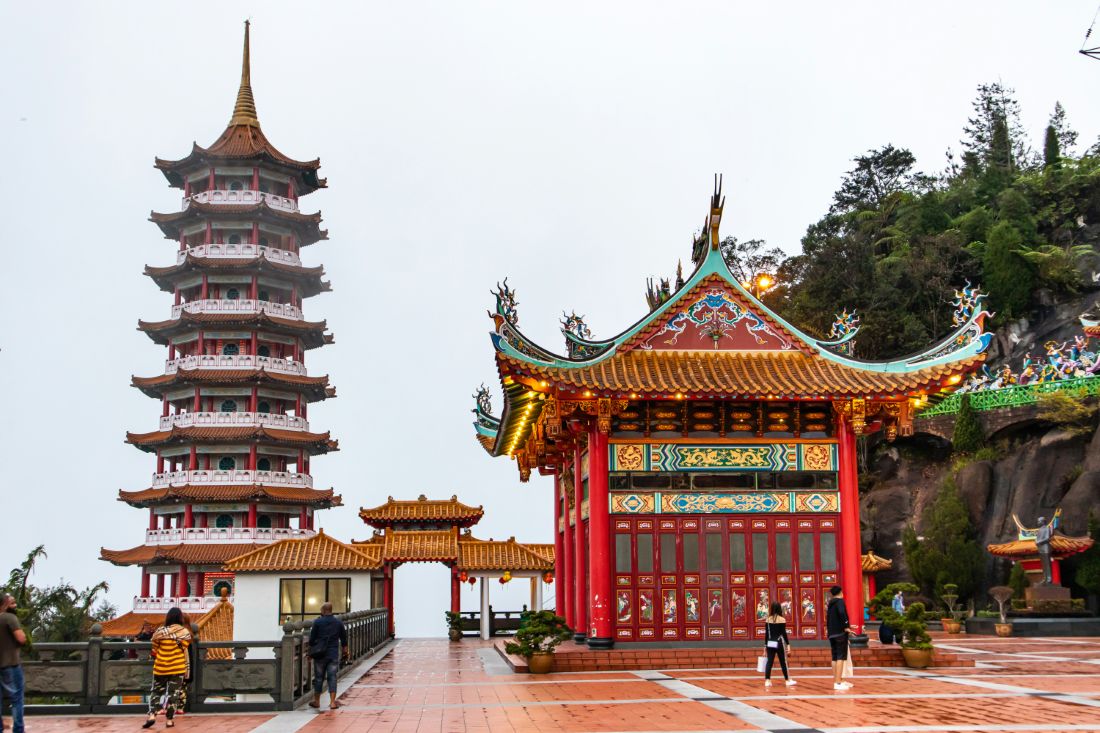Understanding local etiquette is key to enjoying a respectful and enriching journey through Malaysia. This multicultural country values tradition, modesty, and politeness — and knowing what to do (and what to avoid) will help Indian travelers blend in and experience genuine Malaysian hospitality.
1. Dress Modestly
Do: Wear modest clothing when visiting religious sites or rural areas
Highlights: – Cover shoulders and knees in mosques and temples – Carry a scarf or shawl for quick coverage – Respectful dressing earns local appreciation
Don’t: Wear revealing outfits in public spaces or places of worship
Highlights: – Avoid shorts, tank tops, or tight clothing in conservative areas – Swimwear should be reserved for beaches and pools
2. Greet with Respect
Do: Use a polite smile, nod, or light handshake when meeting locals
Highlights: – Say “Salam” or “Hello” with eye contact – Use both hands when giving/receiving gifts or items – Always greet elders first
Don’t: Touch someone’s head or show the bottom of your feet
Highlights: – The head is considered sacred – Pointing with feet or touching others with feet is disrespectful
3. Use Right Hand Etiquette
Do: Use your right hand when eating, giving, or receiving anything
Highlights: – Common practice in both Malay and Indian cultures – Right hand shows cleanliness and respect
Don’t: Hand over money or food with your left hand
Highlights: – Left hand is traditionally considered unclean – Avoid during meals and market interactions
4. Respect Religious Practices
Do: Observe silence and follow rituals when visiting mosques and temples
Highlights: – Remove shoes before entering – Follow dress codes and photography rules – Watch prayer or puja from a respectful distance
Don’t: Interrupt or mock religious customs
Highlights: – Avoid loud conversations or selfies – Do not touch religious statues or altar items unless invited
5. Mind Public Behavior
Do: Be polite, smile, and speak softly in public spaces
Highlights: – Malaysians appreciate calm and courteous behavior – Saying “thank you” and “sorry” goes a long way
Don’t: Display affection openly or raise your voice
Highlights: – Kissing or hugging in public is frowned upon – Arguments or shouting may be considered offensive
6. Eat Local, Respectfully
Do: Try street food and eat with your hands where appropriate
Highlights: – Many locals eat with hands, especially in banana leaf restaurants – Wash hands before and after meals – Join locals in food courts and hawker stalls
Don’t: Waste food or mock unfamiliar dishes
Highlights: – Take only what you can finish – Respect local flavors even if you don’t enjoy them
7. Know When to Bargain
Do: Bargain politely at markets or with small vendors
Highlights: – Smile while negotiating – Start low but fair – Thank the seller even if you don’t buy
Don’t: Haggle in malls or fixed-price stores
Highlights: – Avoid insisting on discounts in chain outlets – Bargaining is not common in modern retail shops
8. Follow Local Laws
Do: Carry ID and follow posted rules in public places
Highlights: – Respect rules in transport, parks, and hotels – Use pedestrian crossings – Dispose of litter properly
Don’t: Bring or use banned items like drugs or vape pens
Highlights: – Malaysia has strict drug laws – E-cigarettes and vapes are banned in many places
9. Travel Respectfully During Ramadan
Do: Be understanding if locals are fasting during daylight hours
Highlights: – Greet with “Ramadan Mubarak” – Wait to eat or drink in public until after sunset if possible – Try buka puasa (fast-breaking meals)
Don’t: Eat, drink, or smoke publicly during fasting times
Highlights: – Especially in predominantly Malay areas – Restaurants still serve food, but discretion is appreciated
10. Tip When Appropriate
Do: Leave small tips at restaurants, hotels, or for tour guides
Highlights: – Tipping is appreciated though not mandatory – Round up the bill or offer RM 2–5 for good service
Don’t: Demand service without appreciation
Highlights: – Gratitude is highly valued – Even a smile or “Terima kasih” (thank you) makes a difference
Feature Image Credit - Photo by Oluwakamiye Adelemoni on Unsplash

